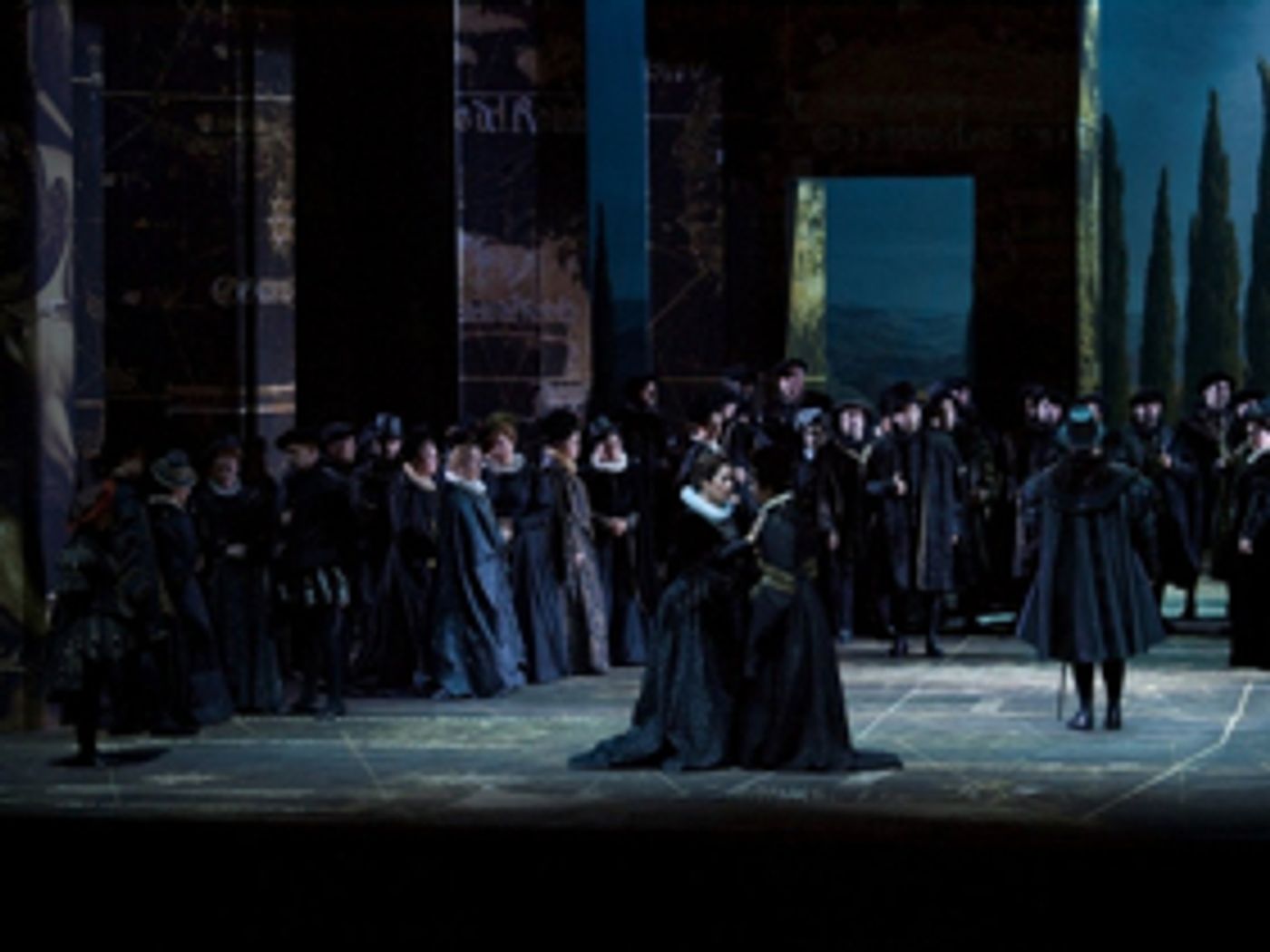DON CARLO Comes to The Israeli Opera

151 years ago, on the 11th of March 1867, the monumental opera Don Carlo opened in a world premiere in Paris. Now, a new massive production takes the stage of the Israeli Opera house, conducted by Maestro Daniel Oren whose special relationship with Verdi's creations is well known, and directed by the famous and highly experienced director Giancarlo del Monaco who has directed operas in important opera houses around the world, chief among them the New York Met Opera, La Scala Theatre in Milano and the Wiener Staatsoper. Giancarlo del Monaco is also the son of the famous tenor Mario Del Monaco.
This production combines large colourful scenes and remains true to the historic events described in Verdi's work. Most of Verdi's critics and researchers are in agreement that Don Carlo is Verdi's most sublime piece. It expresses Verdi's liberal-humanist views in a most revealing fashion and unites all his operatic devices - from his traditional aria bel cantos, through the types of duets and ensembles which he created specifically for this opera, to all the devices of the French Opera, and so watching this creation is a grand musical and human experience.
The opera is based on Don Carlos - one of humanist Friedrich Schiller's famous plays, and Verdi has kept the play nearly entirely unchanged. Verdi used many of his works to discuss personal stories inside political and social value systems, and imbued his creations with criticisms. In Don Carlo, Verdi tackles the struggle between the Church and the ruling class in Italy in his time, and travels as far as Spain under King Philip II, discussing a dark chapter in 16th century Spain's history - the days of the Spanish Inquisition. Don Carlo is an opera that covers a set of conflicts, each with its own musical design:
The struggle of Church and State - a historic struggle which originates in the Middle Ages - between the Church and the monarchy, with Verdi presenting both forces as cruel and destructive. The Church is represented by the intimidating character of the grand inquisitor: and elderly man devoid of human emotion. The monarchy is represented by the character of a cruel and paranoid tyrant king.
The struggle for freedom and national liberation - a subject which occupied many of Verdi's works until 1861 and continued to resonate in his work later on. This struggle is represented in this piece by the struggle of the people of Flanders for liberation from the yoke of Spain's rule.
Interpersonal conflicts - represented by relationships which are expressed by the multiple duets in the piece.
The opera tells the story of Don Carlo - heir to the throne of Spain, whose fiance Elisabeth of Valois marries his father King Philip II as part of a peace treaty. The tension of this love triangle is enhanced by the schemes and actions of Princess Eboli who is in love with Don Carlo, as well as by the witty advice of the Marquis of Posa and the involvement of the cruel grand inquisitor.
For tickets and further information visit The Israeli Opera or call 03-6927777.
Organizers recommend arriving an hour prior to the start of the show as ticket holders are entitled to a free talk which will take place in the Opera lobby.
On Saturday March 3rd at 11:00 The creators of this production and some of the soloists will meet to discuss this opera, the production, their career and opera in our times. This is an opportunity to hear as many details about the production as possible and to get to know the director, the conductor, the designers and the soloists. The soloists will play selected parts of the opera during the gathering.
Videos

